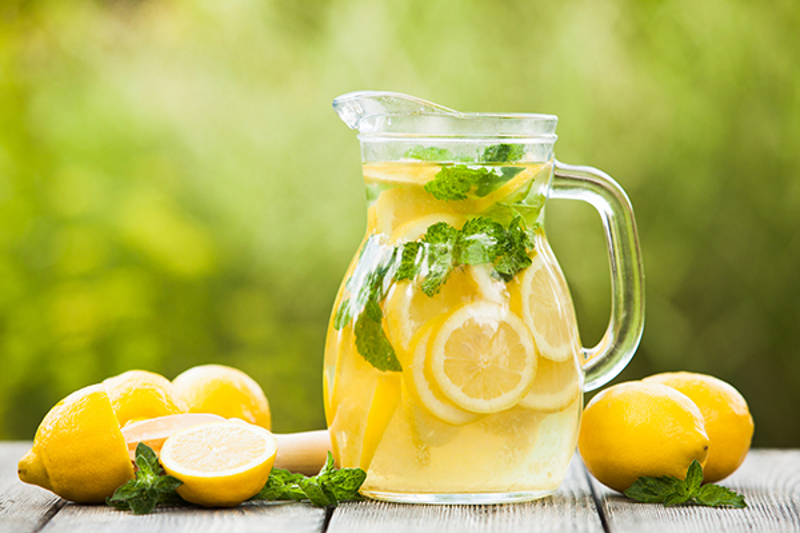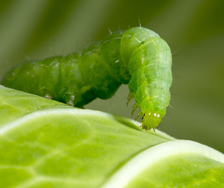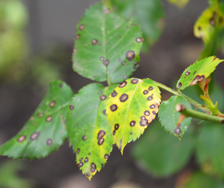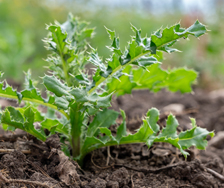Yates Account
Join now
Create a Yates account today!
Sign up to join the Yates Garden Club for monthly e-mails packed with seasonal inspiration, tips for success & exclusive promotions.
Plus if you’re a Garden Club member you can take part in the Yates Growing Community - a blog to share successes, get advice & win prizes in fun challenges along the way!

Forgot password
Enter the email address associated with your account, and we'll email you a new password.

Late Spring Tips for Citrus
Citrus trees stay busy throughout the year; this month they'll be setting delicious fruit for the next harvest.
Here are 5 citrus care tips that will get you through November and the warmer weather to come:
-
Citrus trees have a shallow root system, that can dry out quickly. Stress from lack of water can lead to trees dropping their developing fruit, so they’ll need a good deep soaking at least once a week (more often for potted citrus). If there isn’t enough rainfall for a weekly soaking, it's best to water them deeply yourself.
-
Pea straw or lucerne hay spread 50mm deep over the root zone helps retain soil moisture, and will protect the citrus’ vulnerable roots.
-
Protect new citrus foliage from aphid damage by spraying each week with Yates Nature’s Way Citrus, Vegie & Ornamental Spray. Based on natural pyrethrin (from the pyrethrum daisy) and vegetable oil (boosted with the goodness of seaweed), this spray is BioGro certified for use in organic gardening.
Yates Nature’s Way Citrus, Vegie & Ornamental Spray also controls sap sucking scale insects on citrus. Tell-tale signs of scale include ants running up and down the trunk and stems and also sooty mould, a black ash like film which develops over stems and leaves. Spray over stems and foliage (including the undersides) as soon as scale and aphids are noticed and reapply each week if required.
-
Regular feeding of hungry citrus will encourage a fantastic harvest, so make fertilising your citrus trees a priority. It’s as simple as diluting 2 capfuls of Yates Thrive Citrus Liquid Plant Food into a 9L watering can and applying over the root zone, each week.
-
For large and extra-juicy fruit, feed your citrus with Yates Fruit and Flower Booster Liquid Potash. before flowering, and after fruit set. It delivers potassium in a form that's fast and easy for plants to absorb. Plants need potassium for prolific flower development and to produce quality fruit. Potash also strengthens plant cell walls, which in turn helps protect plants from disease and environmental stress. Yates Flower and Fruit Booster Liquid Potash is easy to mix in a watering can, and can be watered onto the tree's root zone soil as well as the foliage.

Grow Your Own Lemonade!
It takes a brave person to bite into a fresh lemon, unless it’s our unique local variety ‘Lemonade’.
‘Lemonade’ is surprisingly sweet tasting; it doesn’t have the intense sourness you'd expect from most other lemons, just a touch of acidity. You can eat Lemonade lemons straight from the tree without making a face.
'Lemonade' (Citrus limon x reticulata) is a natural hybrid of a lemon and a mandarin, claimed to have been discovered by chance and cultivated here in New Zealand during the 1980s.
'Lemonade’ trees are great for backyards as they don’t get much taller than 2.5m, and produce great yields of fruit, which can be peeled, segmented and devoured, or juiced. ‘Lemonade’ is also available as a more compact dwarf plant, which grows happily in a pot. ‘Lemonade’ does best in a sunny spot, with well-drained soil (or potting mix) and it'll grow in all but the coldest areas of the country.
How to grow:
-
When planting a new ‘Lemonade’ tree, mix some Yates Thrive Natural Blood Bone with Seaweed into the planting hole (or potting mix) to help improve and enrich the soil.
-
When planting citrus into containers, choose a well-drained pot that’s at least 40 cm in diameter and use a good quality potting mix like Yates Premium Potting Mix.
-
Like all citrus, ‘Lemonade’ lemon trees are heavy feeders and require lots of nutrients to stay healthy and productive. Diluting 1 – 2 capfuls of Yates Thrive Citrus Liquid Plant Food in a 9L watering can and applying over the foliage and root zone each week will help to encourage healthy green leaves and a great harvest.
-
Keep the new tree well-watered, particularly during its first summer. Citrus trees have a shallow root system which can dry out quickly.
-
It’s beneficial to apply a few centimetres of mulch over the soil (or potting mix) under the tree, which helps the root zone stay moist. Keep the mulch a few centimetres away from the trunk, to allow good air flow and reduce the chance of collar rot disease.

Yellowed Citrus Leaves?
If new foliage on citrus trees remains yellow and leaves are small or mottled, it may indicate a zinc or manganese trace element deficiency. To restore the foliage to a healthy lush green, apply Yates Citrus Cure Zinc Manganese Chelate. This is an easy to use liquid trace element mix that's applied as a foliar application, for fast results.

















Share
Share this article on social media